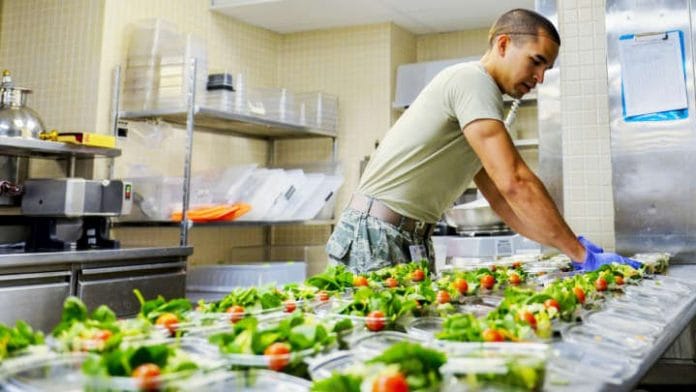Meat consumption plays a huge role in global warming, producing nearly 15% of all carbon dioxide emissions, even more than air travel. This accounts in part for the rapid shift toward vegetarianism, veganism and diets relying less on meat products. In the future, for the health of people and the planet, we should mostly eat vegetables and fruits, whole grains and legumes, with seafood, poultry and red meat playing minor roles in our diets.
But for now, focusing too strongly on meat may risk overselling one idea as a solution to all our problems. Chemically intensive agricultural practices have depleted soils and polluted seas and rivers globally, and farms growing crops have been just as destructive as those raising animals. These problems could get worse, even in a world where no one eats meat at all.
Undoing this damage, while also managing to feed the nearly 10 billion people expected to populate the earth by 2050, is going to require lots of ideas integrated together. That includes less meat, less intensive and more intelligent farming, and the application of new technologies, including ways to produce high volumes of food for cities.
At a recent food festival in Wales, I witnessed an enlightening discussion between two experts on the future of farming. Chungui Lu, a Chinese native who is now a professor in the U.K., spoke on the promise of vertical farming — high-tech indoor vegetable farming capable of producing more food per acre than traditional farming. In contrast, Patrick Holden, a traditional yet visionary Welsh farmer, argued for the human and ecological benefits of small-scale farming for the local sale of meat, cheese and vegetables produced using fully organic methods.
Their ideas seem to reflect a clash between technology and tradition. But I came away thinking that neither offered a solution by itself. Our problems are so deep and diverse, and multiplied by local variations in culture, weather and human density, that no one solution will suffice. We’re going to need many.
Lu sees vertical farming as a way to produce huge volumes of fresh, healthy vegetables to feed people in tomorrow’s megacities, which by 2050 will hold fully two-thirds of the entire human population. Besides its appeal of higher productivity, vertical farming can be done all year as it is not affected by weather and requires no pesticides or fungicides, such as those implicated in the destruction of insect populations, including that of bees. It also offers reductions in transport costs, as food is grown close to where it’s eaten.
But the end goal of vertical farming, Lu argued, isn’t to move farming off the land permanently. Rather, scaling it up could give China time to feed its people while taking steps to restore the natural fertility of its currently depleted agricultural land. In one project, Lu grew crops in LED light inside temperature-controlled shipping containers, with each container producing 3 to 5 metric tons a year. The practice has become widespread in large Chinese cities, with supermarkets and hotels growing their own crops indoors.
Vertical farming has also caught the attention of investors. But there’s also great appeal in Holden’s traditional farming approach, which produces food on a small scale attuned to local Welsh tastes and does so while restoring soils to healthy conditions. This involves careful crop rotation and practices based on deep knowledge of the microbiology of healthy soil. His cows, for example, graze on rich fields of oats, peas and clover under controlled conditions that avoid overgrazing and damaging roots.
From the ecological perspective, Holden said, the meat-versus-vegetable distinction isn’t the right one. Both can be produced in environmentally helpful ways as well as harmful ones, with the latter becoming the norm over the past half-century of industrial farming. Vegan and vegetarian diets may be good for CO2 emissions, but their blind pursuit can exacerbate other issues. He gives one example: It doesn’t help the environment to eschew a local organically grown egg in favor of tofu produced with intense pesticide application on a soy plantation carved out of the Amazon rainforest.
Holden’s farming reflects a more integrated systems approach that doesn’t focus on one problem to the exclusion of others, but tries to offer improvements on many issues at once. It’s an idea gaining momentum not only in farming, but also in other areas, such as energy generation. For example, solar energy may be a great idea, but not if installations also end up degrading local ecologies — interfering with plant growth and the insects that feed on them. Engineers have developed principles to guide installations more intelligently so they generate energy while also benefiting the local ecology. A solar farm in Wiltshire, U.K., for example, grows native grasses and herbs in the spaces between panels so as to provide a rich habitat for pollinators.
The data on efforts to realize the U.N. Sustainable Development Goals indicate that reducing CO2 emissions is the one goal most in conflict with all the others. Hence, there’s no easy pathway to less CO2 that also addresses the other issues we face, among them feeding a rapidly growing population. Lu and Holden’s examples reflect the kinds of small-scale experiments we need to help us find a way through the messy thicket of conflicts to design a truly sustainable future. -Bloomberg
Also read: Mock eggs & mock meat on the menu as IIT-Delhi seeks to collaborate with industries







Aren’t your ads paying you enough?
Unscientific, biased, funded journalism.
Meat is good bruh? For the meat lobbyists paying your money, no the planet or the humans, let alone the animals.